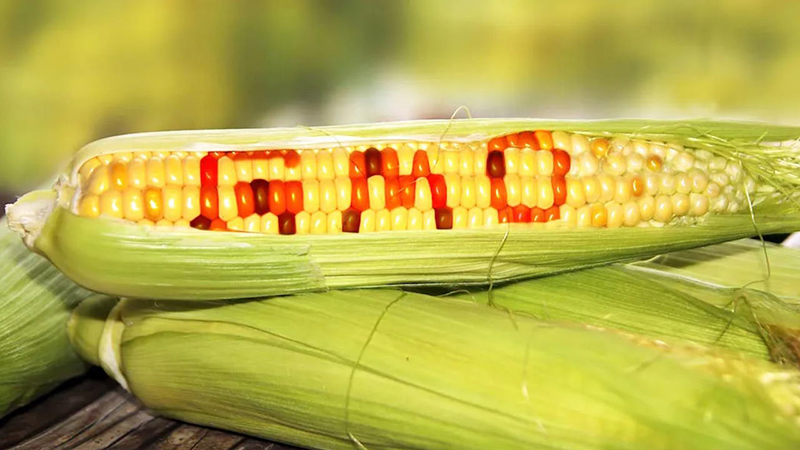Mexico’s President boldly bans GMO corn from the country

In a landmark decision that has sparked both praise and controversy, Mexico’s President Claudia Sheinbaum has announced a sweeping ban on transgenic corn (also known as GMOs), marking a significant shift in the country’s agricultural and environmental policies.
Mexico is often referred to as the cradle of corn, with its ancient civilizations domesticating the crop over 9,000 years ago. Today, corn remains a cornerstone of Mexican culture, cuisine, and identity. It is not just a staple food but a symbol of national pride and tradition. However, the introduction of transgenic corn — genetically engineered to resist pests or tolerate herbicides — has raised concerns about its impact on native maize varieties, small-scale farmers, and the environment.
The move, which aims to protect Mexico’s rich cultural heritage, biodiversity, and public health, has positioned the nation as a global leader in the fight against genetically modified organisms (GMOs). But what exactly does this decision mean, and why has the Mexican government taken such a bold stance?
At the heart of the issue is the patenting of genetically modified seeds. Companies like Monsanto invest heavily in biotechnology to develop seeds with specific traits, such as resistance to pests or tolerance to herbicides like glyphosate. Once these seeds are created, they are patented as intellectual property, giving the company exclusive rights to their use and distribution. This means farmers who purchase these seeds are legally prohibited from saving, replanting, or sharing them—a practice that has been a cornerstone of agriculture for millennia.
For many farmers, this creates a cycle of dependency. Instead of saving seeds from one harvest to plant the next, they must return to the company every year to purchase new seeds. This increases their costs and ties them to the company’s products and the agricultural inputs—such as herbicides and fertilizers—that are often required to grow them effectively. In essence, farmers are no longer just growing crops but renting a system controlled by corporate interests.
Native maize varieties, known as criollo, are uniquely adapted to the country’s diverse climates and ecosystems. These heirloom strains are vital for food security and serve as a genetic reservoir for future crop resilience. Critics of transgenic corn argue that cross-pollination between GMO and native varieties could lead to the loss of these irreplaceable genetic resources, threatening biodiversity and the livelihoods of millions of smallholder farmers who rely on traditional farming practices.
Reliance on a narrow range of genetically modified crops can also make agricultural systems more vulnerable to shocks, such as disease outbreaks or climate change. With their genetic diversity, traditional seed varieties offer a buffer against such risks, but the dominance of patented seeds threatens their continued existence.
A handful of communities in Mexico, including the tiny village of Yaxunah, have already begun to take matters into their own hands by running a not-for-profit seed bank where farmers “loan” heirloom seeds of maize and other crops to preserve species that would otherwise rapidly go extinct because of commercially patented varieties.
The aggressive enforcement of GMO patents has further fueled the controversy. Agricultural companies have a history of suing farmers for patent infringement, even in cases where patented genes in a farmer’s field were unintentional, such as through cross-pollination or seed drift. These lawsuits have devastated small-scale farmers, many of whom cannot afford the legal fees or the settlements demanded by the company.
The ban has not been without its critics. Opponents argue that it could strain trade relations, particularly with the United States, which exports significant amounts of GMO corn to Mexico. Some also worry that the policy could lead to higher food prices or disrupt supply chains. However, the Mexican government has countered these concerns by highlighting the importance of investing in sustainable agriculture and supporting local farmers. By promoting organic and non-GMO farming practices, the administration aims to create a more resilient and self-sufficient food system that benefits both producers and consumers.
However, it is essential to consider that GMO maize is not inherently dangerous or bad, as all corn cultivated today results from human genetic intervention through domestication. While GMO corn is not a silver bullet for all agricultural challenges, it offers tools that can contribute to more sustainable farming practices. By reducing the need for chemical inputs, conserving water, and improving soil health, GMO corn can help minimize agriculture’s environmental footprint. When used responsibly and in conjunction with other sustainable practices, it has the potential to support a more resilient and productive food system.
The advantages of GMO corn are undeniable, from boosting yields and reducing pesticide use to enhancing nutritional content and climate resilience. However, these benefits must be weighed against ethical, environmental, and social concerns.
For almost 30 years of expertise in the agri markets, UkrAgroConsult has accumulated an extensive database, which became the basis of the platform AgriSupp.
It is a multi-functional online platform with market intelligence for grains and oilseeds that enables to get access to daily operational information on the Black Sea & Danube markets, analytical reports, historical data.
You are welcome to get a 7-day free demo access!!!
Write to us
Our manager will contact you soon



